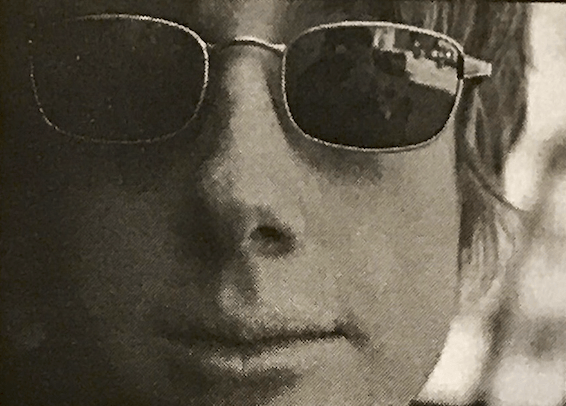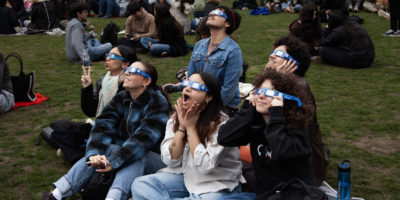By Ryan Silverman
When Michael Penny decided to make his first documentary, he headed straight to the Lava Lounge on College Street. Within a week, the second-year film student and his crew were lugging their equipment through the club’s front door. After ninety-six hours of work, The Mod Club was completed.
The documentary is about Toronto’s mod culture, a revival of the mid-1960s British youth movement made famous by sharply dressed kids in colourful clothes.
It includes a brief history lesson outlining the origins of the movement and explains how being mod represented a certain attitude and crazy clothes.
Penny says clips from past films celebrating mods, such as the 19666 British-Italian Blowup and thee 1979 cult classic Quadraphenia, appear throughout the movie. Penny says the mod-inspired bands such as The Who and The Yardbirds are honoured.
But Penny, who directed the documentary, says the film doesn’t only focus on the past.
“It is very contemporary,” Penny says. “It’s about what’s happening here, today, in Toronto.” More specifically, the Wednesday night scene at the Lava Lounge, when the club hosts mod nights catering to the local version of the movement.
“The Lava Lounge is packed with people who are simply devoted o being mod,” Penny says.
Penny got permission from the Lava Lounge to shoot at night without restriction. The film will screened at Ryerson’s end-of-year new media festival, Maximum Exposure.
Penny says the film is a low-budget project. While transportation and food services for the crew were a significant expense, the majority of funds were spent on Betacam video tapes and black-and-white 16-millimetre film. Penny isn’t even sure how much money was spent—he just shelled out cash as needed. The rest of the equipment was borrowed from Ryerson’s film department.
“Low-budget is still very expensive,” Penny says. Betacam videotapes are the television industry standard and usually cost around $50 for a 30-minute tape. That’s cheaper than 16-millimetre film, which Penny says costs 100 for every five minutes of footage.
Penny worked with three other film students on the project. Danielle Bondy, a second-year student who worked as the film’s sound recordist, says his professionalism is far beyond his years. “He was very capable,” she says. “He knew exactly what he wanted. There was hardly ever any confusion on the set, which is rare.”
The Mod Club will be screened at Maximum Exposure April 27 to 30 in the Image Arts building. Admission is free.










Leave a Reply